Letters To My Daughter's Killer - [16]
‘Not even to me, and I saw her. Perhaps if I’d been able to go and identify her…’ A dozen blows at least. Her face.
‘Will they let you see her another time?’
I shrug.
‘Ask them,’ she says.
‘She was pregnant, Bea.’
Her lip quivers.
I try and keep my voice steady. ‘Twins, not far on, seven weeks.’
‘Oh Ruth, it’s horrendous. Whoever it is, I hope he’s shot resisting arrest or something.’ She slams the cafetière down on the side and I fear the glass will crack.
‘No. Don’t say that.’
‘Why?’ She’s almost cross with me.
‘Because then we won’t know anything.’
She baulks, considering this, raises her eyebrows. ‘Perhaps it’s best-’
‘No,’ I interrupt, ‘it isn’t.’
I try and explain to her.
In the night I wake and hear crying, sobbing, Jack in the other bedroom. No sound from Florence. Poor, poor man.
I wonder whether she knew her fate. Whether she sensed it as the door swung open. She was good at reading body language; intrinsic to her work after all. But she was shy, too, reserved, so that might have been a check on her instinctive response.
At what point did she know? Or did she die ignorant, oblivious? You must have had time to grab the poker, or did you attack her before you picked that up? Trip her over, knock her down, punch her?
One of the hardest things is imagining the terror she must have felt if she did realize you were going to hurt her. If she understood with the innate sense of an animal that she was in jeopardy, in the deepest danger. The preservation of life is the strongest instinct; it’s why starving people will eat their young, why someone trapped will sever their own limb.
Had she the prescience to know her life was ending? It pierces my soul to think of Lizzie riddled with that level of fear.
When you finally answer my questions, I hope that you will tell me that she had no notion of what would befall her, that you tricked her and she turned away, and she never saw you raise the cast-iron stick. That the first blow felled her like a lamb, crushed her brain like a grape, stopped her heart, the swelling of her lungs, the blood in her veins. I hope that you will tell me that.
But I need you to tell me the truth.
However bleak.
Ruth
CHAPTER NINE
Thursday 17 September 2009
Kay orders the flowers. A bouquet from Jack, one from Tony and me. She brings back some stationery too, cream vellum, thick, for us to write notes.
Florence is drawing a rainbow with felt tips, upper teeth snagging her lower lip in concentration. She presses hard on the paper, which begins to tear. When I try to slide another piece of paper underneath, she shoves it away. I feel a moment’s fierce irritation. Hold it in. After all, the kitchen table is already marked with scratches, burns and scuffs, biro marks. A bit of felt tip won’t hurt.
I pick up a pen and stare at the paper. What can I possibly say? ‘I can’t do this,’ I mumble, tears stinging the back of my eyes. I pull my glasses off.
‘Ruth…’ Tony says.
‘No.’ I go outside. Words have been my life, words, books, stories, reading. Okay, maybe not the whole of my life, but a great part of it, and now they fail me. They are inadequate, pale, flimsy, weak.
Tony comes out after a few minutes. ‘We can just keep it simple,’ he says. ‘Say we love her, always.’ His voice wavers and he pinches his nose.
‘It’s not enough.’
‘A poem then, a quotation.’
I smile, a rush of affection. I used to send him poems when we first started going out. Sonnets and verses I thought he’d like. Shakespeare, Donne, Plath, Dickinson.
‘I’ll have a look.’
He had come to the library looking for reference books about architecture, wanting to become more knowledgeable for his salvage work. I had just started there, librarian assistant on a job creation scheme. A way to get off the dole for six months. After a degree in English and history and a year’s teacher training, I decided that teaching was not for me. At least not classroom teaching. But I loved the library work, helping people with all sorts of quests for knowledge.
When Tony asked for advice, whether there were any more books he could get hold of, I suggested he try Central Library with its extensive reference section. I showed him how to find books in the catalogue and, if they weren’t in our Ladybarn branch, how to request an inter-library loan.
He kept coming back. Shelley, one of the other staff, nudged me one day: ‘Romeo’s in again.’ I wondered who she meant. Then she nodded to him. ‘Put him out of his misery, Ruth, ask him out.’
‘You don’t think…’ I blushed.
‘I do. Don’t you like him?’
It took me a moment to answer. ‘Yes.’
‘Well then. Invite him to the Valentine’s Verse Night.’ We were having an event with local poets and musicians.
My face was still aflame as Tony came up to the counter.
‘This one’s overdue,’ he said. ‘My uncle borrowed it.’
‘First time, I’ll let you off.’
He smiled. When he smiled, his green eyes shone.
Tony isn’t traditionally handsome; he certainly hasn’t got the leading-man looks that Jack has. He’s well built, broad-shouldered, with huge hands and feet. A bit like a prop forward. His nose is sharp, his cheeks round. He had curly blond hair back then but I found him attractive. And he had charisma.
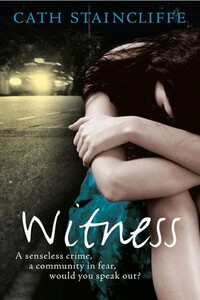
"A painfully honest exploration of an ordinary family under stress… A stunning piece of work." – Ann CleevesFour bystanders in the wrong place at the wrong time. Witnesses to the shocking shooting of a teenage boy. A moment that changes their lives forever. Fiona, a midwife, is plagued by panic attacks and unable to work. Has she the strength to testify? Mike, a delivery driver and family man, faces an impossible decision when his frightened wife forces him to choose – us or the court case. Cheryl, a single-mother, doesn't want her child to grow up in the same climate of fear.
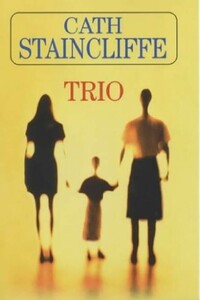
1960, Manchester. Three young Catholic women find themselves pregnant and unmarried. In these pre-Pill days, there is only one acceptable course of action: adoption. So Megan, Caroline and Joan meet up in St Ann's Home for Unmarried Mothers to await the births of their babies. Three little girls are born, and placed with their adoptive families. Trio follows the lives of these mothers and daughters over the ensuing years.
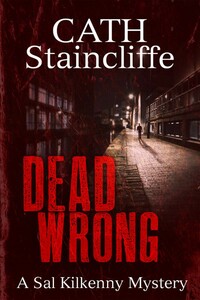
Single mother and private eye, Sal Kilkenny, has two very frightened clients on her hands. One, young mother Debbie Gosforth, is a victim; the other, Luke Wallace, is afraid he is a murderer. While Sal tries to protect Debbie from a stalker, she has to investigate the murder of Luke's best friend.

Your husband, your family, your freedom. What would you sacrifice for love? A love story, a modern nightmare and an honest and incisive portrayal of a woman who honours her husband's wish to die and finds herself in the dock for murder.When Deborah reluctantly helps her beloved husband Neil end his life and conceals the truth, she is charged with murder. As the trial unfolds and her daughter Sophie testifies against her, Deborah, still reeling with grief, fights to defend her actions. Twelve jurors hold her fate in their hands, if found guilty she will serve a life sentence.
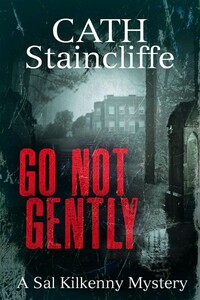
From the author of LOOKING FOR TROUBLE, a further crime novel featuring private investigator Sal Kilkenny. When a man is distraught at his wife's apparent infidelity, he enlists the help of Sal to confirm his suspicions, only to find himself a widower soon afterwards. From there Sal's other case also begins to take a disturbing and violent turn.
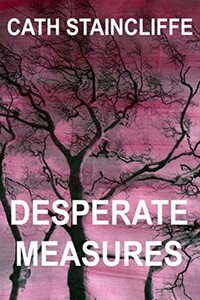
The fourth Blue Murder novel written by the creator of the hit ITV police drama starring Caroline Quentin as DCI Janine Lewis.A well-respected family GP is found shot dead outside his surgery; who could possibly want to kill him? As DCI Janine Lewis and her team investigate they uncover stories of loyalty, love, deception, betrayal and revenge.Praise for the Blue Murder books'Complex and satisfying in its handling of Lewis's agonised attempts to be both a good cop and a good mother.' The Sunday Times'Uncluttered and finely detailed prose.' Birmingham Post'Beautifully realised little snapshots of the different characters' lives… Compelling stuff.' Sherlock Magazine'A swift, satisfying read.' City Life'Precise and detailed delineation of contemporary family relationships.' Tangled Web'Lewis seems set to become another very popular string to Staincliffe's bow as one of the leading English murder writers.' Manchester Metro'Pace and plenty of human interest.' Publishing News'Blending the warmth of family life with the demands of a police investigation.'Manchester Evening News'Juggling work and family is a challenge of modern life and encountering realistically portrayed women with family responsibilities is a pleasure.

В книге рассказывается история главного героя, который сталкивается с различными проблемами и препятствиями на протяжении всего своего путешествия. По пути он встречает множество второстепенных персонажей, которые играют важные роли в истории. Благодаря опыту главного героя книга исследует такие темы, как любовь, потеря, надежда и стойкость. По мере того, как главный герой преодолевает свои трудности, он усваивает ценные уроки жизни и растет как личность.

В книге рассказывается история главного героя, который сталкивается с различными проблемами и препятствиями на протяжении всего своего путешествия. По пути он встречает множество второстепенных персонажей, которые играют важные роли в истории. Благодаря опыту главного героя книга исследует такие темы, как любовь, потеря, надежда и стойкость. По мере того, как главный герой преодолевает свои трудности, он усваивает ценные уроки жизни и растет как личность.

В книге рассказывается история главного героя, который сталкивается с различными проблемами и препятствиями на протяжении всего своего путешествия. По пути он встречает множество второстепенных персонажей, которые играют важные роли в истории. Благодаря опыту главного героя книга исследует такие темы, как любовь, потеря, надежда и стойкость. По мере того, как главный герой преодолевает свои трудности, он усваивает ценные уроки жизни и растет как личность.

В книге рассказывается история главного героя, который сталкивается с различными проблемами и препятствиями на протяжении всего своего путешествия. По пути он встречает множество второстепенных персонажей, которые играют важные роли в истории. Благодаря опыту главного героя книга исследует такие темы, как любовь, потеря, надежда и стойкость. По мере того, как главный герой преодолевает свои трудности, он усваивает ценные уроки жизни и растет как личность.

В книге рассказывается история главного героя, который сталкивается с различными проблемами и препятствиями на протяжении всего своего путешествия. По пути он встречает множество второстепенных персонажей, которые играют важные роли в истории. Благодаря опыту главного героя книга исследует такие темы, как любовь, потеря, надежда и стойкость. По мере того, как главный герой преодолевает свои трудности, он усваивает ценные уроки жизни и растет как личность.

В книге рассказывается история главного героя, который сталкивается с различными проблемами и препятствиями на протяжении всего своего путешествия. По пути он встречает множество второстепенных персонажей, которые играют важные роли в истории. Благодаря опыту главного героя книга исследует такие темы, как любовь, потеря, надежда и стойкость. По мере того, как главный герой преодолевает свои трудности, он усваивает ценные уроки жизни и растет как личность.